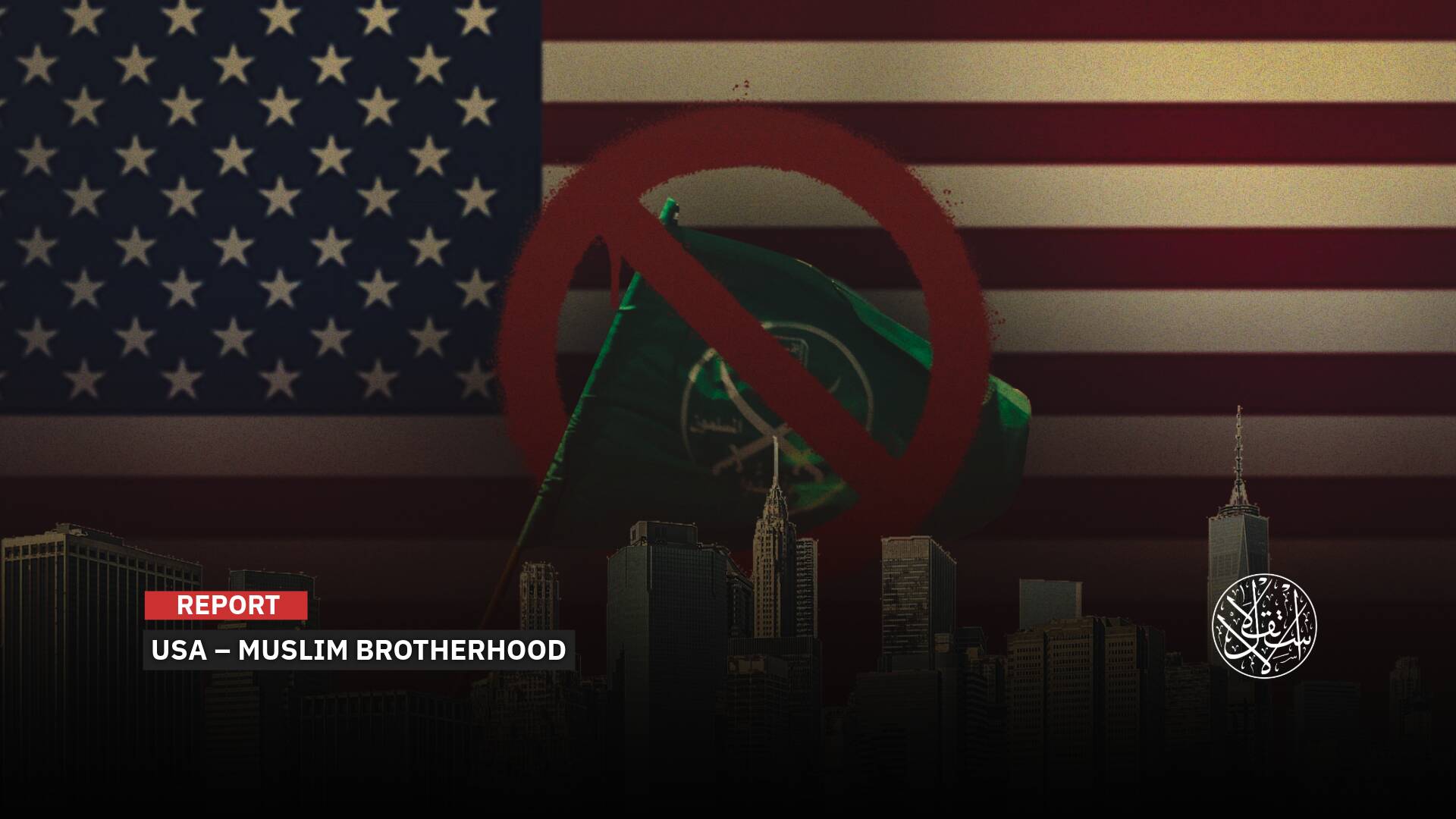After Years in Diaspora, Are Syria’s Jews Considering a Return?

In the old city of Damascus, there’s a neighborhood called the Jewish Quarter.
Some Syrian Jews seized the fall of Bashar al-Assad’s regime on December 8, 2024, as an opportunity to return to Damascus after decades in exile and assess the possibility of resettling in their homeland.
In mid-February 2025, Syrian-American Rabbi Yusuf Hamra and his son Henry arrived in Damascus for the first time since they immigrated to the U.S. more than 30 years ago.
The Syrian-American Jewish family returned as part of a delegation organized by the Syrian Emergency Task Force, a U.S.-based nonprofit made up of Syrian opposition members.
Syrian Jews
The Arabic-speaking Jewish family was welcomed by former neighbors in the Jewish Quarter of the old city of Damascus.
During their visit, the family, who had traveled from the United States, performed the Tefillat Todah (a general thanksgiving prayer) inside the al-Franj synagogue, where Yusuf once served as a rabbi, in what is still known as the Jewish quarter. They carried out the communal ritual, which they said was the first of its kind in over three decades.
Al-Franj Synagogue is one of eight synagogues in Damascus, originally established by the Jewish community that fled Spanish persecution following the fall of al-Andalus in the late 15th century.
Syria is home to more than 20 synagogues, but al-Franj is the only one still hosting prayers for the remaining Jews of Damascus. The synagogue’s current structure dates back to the late 19th century during the Ottoman period.
After leading prayers at al-Franj, Yusuf Hamra, 77, told reporters on February 19, 2025 that the last time he prayed here was before he left for the United States.
“After arriving in Damascus two days ago, I came to pray for the first time [..] after 34 years,” he said.
Hamra, who left Syria with his family in 1992, stated, “I have been trying to return to Damascus for a year and a half, but Syria’s ousted regime did not allow it.”
Addressing Jews in the West, Hamra said, “Come to Syria and see for yourselves. Perhaps your perspective will change, and you may want to return.”
In 1992, more than 5,000 Jews were forcibly expelled from Syria under Hafez al-Assad’s regime.
Bashar al-Assad later barred Jews from returning and confiscated their properties after they emigrated to Europe and the United States.

This is the first religious Jewish delegation to return to Syria in 33 years. Hamra, the last rabbi to leave the country at the age of 44, was among the thousands of Syrian Jews who departed in the early 1990s.
Reports indicate that before fleeing, Damascus’s chief rabbi, Ibrahim Hamra, smuggled Torah scrolls, crowns, ancient manuscripts, and preserved synagogue artifacts—including the oldest known Torah, inscribed on deerskin—to “Israel” in the early 1990s.
After the synagogue prayers, Bakhour Chamntoub, head of Syria’s Jewish community, expressed his joy at welcoming Rabbi Hamra and his son.
Chamntoub, whose 12 siblings all left Syria, said, “I’m happy to see the delegation from the U.S. I need more Jews here in the quarter,” hoping that “Jews will return to their neighborhood and their people in Syria.”
A longtime resident of the Jewish Quarter in the old city of Damascus, Chamntoub is among the few who chose to stay in Syria.
“For 40 years, I haven’t prayed in a congregation. I can’t describe how I feel,” he added.
When Christian neighbors saw Yusuf Hamra in the street, they recognized him from his days as a teacher at the local school, sparking conversations filled with old memories.

Sacred Sites
The Jewish delegation also visited the tomb of Rabbi Chaim Vital and several synagogues in Damascus.
Their itinerary included the Jewish cemetery, the historic Jobar Synagogue—destroyed by the Assad regime—al-Arki Synagogue, and the Jewish school Bein Maimon.
Historians consider Jobar, northeast of Damascus, the city’s second-oldest Jewish hub. At its heart stood the Eliyahu Hanavi Synagogue, the world’s oldest, dating back to 720 BCE.
For centuries, Jews gathered at this sacred site every Sabbath. However, it was reduced to rubble when Assad's forces shelled the district after the Syrian uprising. The synagogue, once a pilgrimage site for Jews worldwide, featured a grand 60-meter-long hall and a caretaker’s chamber.
The Jewish quarter in Jobar was also home to al-Majdal Jewish school.
Jews, who have lived in Syria since ancient times, were allowed to practice their faith freely under the Assad family’s rule. However, Hafez al-Assad imposed severe restrictions on their movement, barring them from travel until 1992.
Once permitted to leave, the Jewish population in Syria plummeted from around 5,000 to just seven elderly residents in Damascus.
Damascus’s Jewish community was known for its craftsmanship, excelling in sulfur and copperware production, as well as gold trading. They spoke Arabic—specifically the Damascene and Aleppine dialects—alongside Hebrew and had their own school.
Most Syrian Jews ultimately emigrated to the United States after Hafez al-Assad stripped them of their Syrian citizenship, allowing their departure only under the condition that they not settle in “Israel.”
Following the Syrian revolution in 2011, all synagogues were shuttered.
However, the new Syrian administration has pledged to include all religious communities in shaping Syria’s future and ensuring their security.
After 1948, Syrian Jews faced suspicions of being spies or collaborators with “Israel.” This sentiment grew stronger following the execution of Israeli Occupation's most notorious spy since its founding, Eli Cohen, who was executed in Marjeh Square in Damascus in 1965.
Cohen entered Syria under a false identity, using the name Kamel Amin Thabet, and managed to infiltrate Syria's ruling elite, eventually gaining access to the inner circle of Amin al-Hafeez, who was president from July 1963 until February 1966.
Trained by Mossad, Cohen mastered the Syrian dialect before relocating to Argentina, where he embedded himself within the Syrian expatriate community, posing as a wealthy businessman longing to return to his homeland.
Now, with the fall of the Assad regime, Syria’s new leadership has reopened the door for Jews to reclaim their religious life.

Reconstruction Support
Mouaz Moustafa, executive director of the Syrian Emergency Task Force, said he hoped that the Jewish delegation would encourage more Syrian Jews to return - and would help make the case for Washington to lift sanctions that had been imposed during Assad’s era.
Speaking to the Associated Press, Moustafa also noted that the visit could signal that the new Syrian authorities, led by interim President Ahmed al-Sharaa, are serious about inclusivity and minority protection.
The Jewish delegation met with Syria’s deputy foreign minister, and Yusuf Hamra sent a letter to al-Sharaa in which he said that the Syrian Jewish community abroad “continues to cherish its deep-rooted connection to Syria, its motherland.”
“Throughout history, this community has been an integral part of the Syrian national fabric,” Hamra wrote. “We look forward to rebuilding bridges of communication and to actively participating in the reconstruction of our homeland, standing side-by-side with our fellow Syrians.”
Despite the emotional impact of returning, the Hamra family remains reluctant to consider resettling in Damascus, given the country's severe infrastructure collapse and widespread devastation.
“You cannot stay with no electricity, you cannot stay with no water, and when you’re living in New York and you have 24 hour electricity and internet [..] it’s very, very, very hard to move back here,” Henry said.
In December 2021, Syrian-born Jew Joe Jagati visited Damascus with 12 family members from New York, where they had settled in the 1990s.
Jagati, who left Damascus in 1996, has since made multiple solo trips back to Syria, as his retained Syrian citizenship allows him to enter the country without difficulty.
Sources
- Syrian rabbi returns to Damascus after 33 years
- Syrian Jews’ homecoming brings hope for reconstruction and a permanent return after decades in exile
- A delegation of Syrian Jews visits Damascus after decades in exile [Arabic]
- Syrian Jews in exile confirm they will rebuild the "Eliyahu Hanavi" synagogue in the Damascus neighborhood of Jobar [Arabic]
- From New York to Damascus: How did 12 Jews spend their vacation in Syria? [Arabic]











